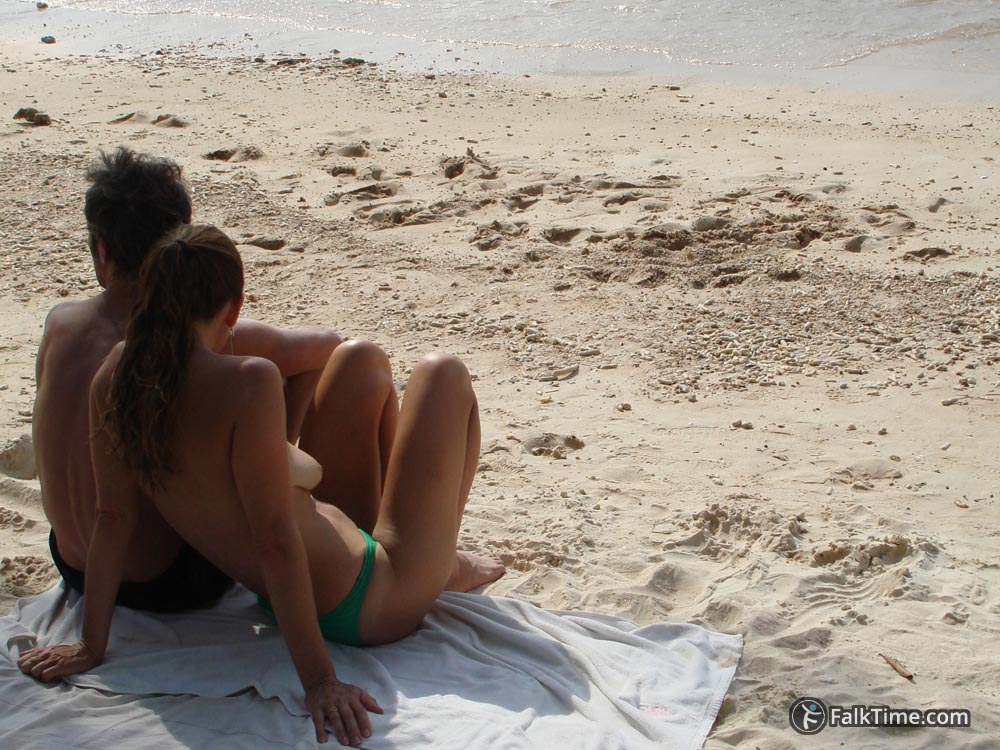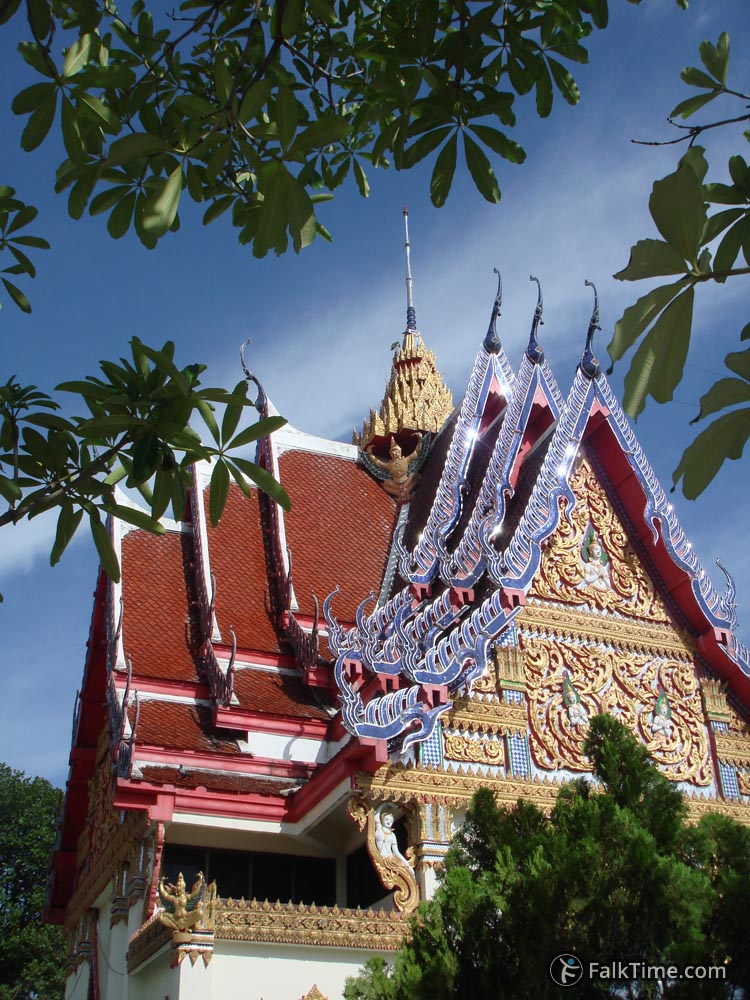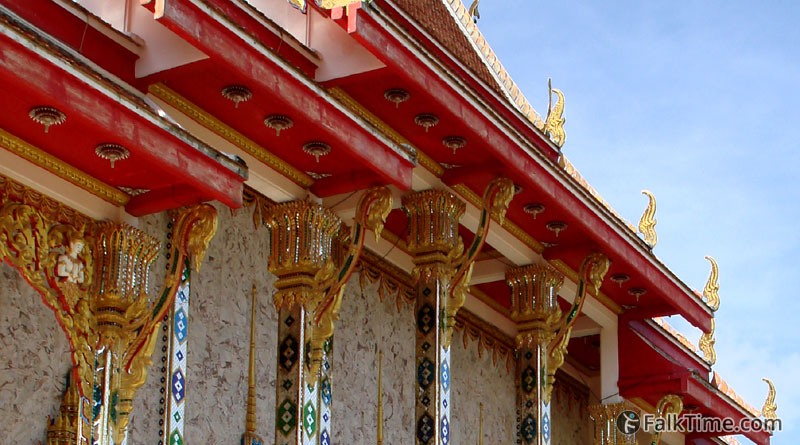Rules of behavior in Thailand: how not to get imprisoned
Every country has some of specific rules of behavior – Thailand is not an exception. In many cases Thais prefer to turn a blind eye, if it concerns etiquette. But every tourist is a representative of his/her own country, despite of being on vacation. Don’t you want your country to be represented in better way?
If we speak of the law, it can be a danger to play with it – some mistakes that will be excused for locals, won’t get an excuse for a foreigner. Furthremore, if you break Thai law, a strict penalty may be applied to turn you into example for other foreigners – how one shouldn’t behave in Thailand.
Contents
All things that one shouldn’t do in Thailand I have divided in 3 chapters:
- Law violations and what to do if something happened (must-read thing as it decreases the risk of being imprisoned)
- Rules of behavior in Thailand / good manners (these issues are not included in any laws, but knowing them will keep you away from some common tourist’s mistakes and from troubles)
- How to visit Thai temple
If you want to visit a national park in Thailand, I’ve gathered all the information you may need in a separate article devoted to protected areas.
Law violations
Dear friends, ignorance of the law is not an excuse. And to most of us (even to severe Russians) the prison in home country will seem much more civilized than Thai prison. That’s why one should do his best to avoid breaking Thai law.
1. Drugs
No, no and one more time NO. Neither to consume, nor to transport. Avoid even discussing drugs. Thailand had huge problems with drug traffic, that’s why Thais have very strict laws. Never take anyone’s luggage, no matter how tearfully one begs you to do it. Only your own luggage should be registered on your name, when you board the plane. More than 30 years have passed since “Bangkok Hilton” was filmed, but unfortunately its plot is still up-to-date.
2. The King and monarchy
Thai king is almost holy person for Thai people. So the king and monarchy should be treated with high respect. Avoid any words or actions that can be regarded as an offence against the dignity of sovereign. It means that you should treat careful:
- King’s images (you will see numerous portraits of the king in any settlement),
- Money (Thai banknotes are decorated with the image of Their Majesties),
- Newspapers (as they can include articles about the king and his pictures),
- Any monuments (never try to climb on them, as it may appear that this is a statue of one of Thai kings).
It is highly recommended to avoid discussing the king as well as politics with Thais. It’s their own business and we are just guests. Also avoid discussing Thai king (with your nationals) in public places. Lèse-majesté is watching you.
3. Blasphemy
Treat all sanctuaries and statues with respect – blasphemy is a law violation. Avoid touching monuments and climbing on them in order to make a picture, a monument can appear to be sacred or to be a statue of a member of Thai Royal family – up to 15 years of imprisonment.
4. Smoking
In Thailand smoking is prohibited on the most of beaches (the list includes all beaches in popular destinations and it will definitely become longer). It goes about huge environmental damage that cigarette butts bring: they are poisoning sea creatures.
Also smoking in public places step by step becomes prohibited in Thailand. Officials organize special places for smokers. So if you doubt whether one can smoke here, ask locals, if they don’t get you, just take a cigarette out and show them – it’s so easy.
a) E-cigarettes
Leave e-cigarettes (and similar devices) at home – they have been forbidden in Thailand since 2017, due to high popularity among young people that have never smoked before.
5. Sex
Prostitution in Thailand is illegal. So one uses sex services only at one’s own risk.
Sexual offenses (including insult to dignity, harassment, and photo / video filming) are punishable by 4-20 years in prison. Sex in public is a law violation also.
6. Topless sunbathing
Girls should never appear topless in public, even on a beach. In Thailand it’s violation of the law. Of course you may be lucky, if no one notices you or no one reports about you, but is it worth relying on the luck?

7. Use of unregistered drones
Up to 5 years of imprisonment and/or fine up to 100 000 THB. A drone should be registered in 2 organizations:
- CAAT (Civil Aviation Authority of Thailand) registers a person that controls drone and is responsible for it. If you apply for it in person, it will take up to 15 days. There’s a possibility to apply online, but you need to present a visa to Thailand or a stamp (of visa-free entry) that is not older than 1 year.
- NBTC (National Broadcasting Telecommunications Comission) registers frequencies used by a drone.
Insurance that covers damage of 1 000 000 THB to third party is a must. Besides drone operator should be older than 20 y.o. And the drone should fly only at the height between 15 and 150 meters. If the drone weighs more than 25 kg, you should also get permission from Transport Ministry.
There’s no direct answer whether it is a good idea to take a drone to Thailand or not – it depends on you, just keep in mind that it may take 15 days to get registration. Also you need to keep up with temporary bans, f.e. flights of drones were prohibited during 4 days of king Rama 9 funeral.
Don’t launch drones next to airports or crowded places, keep them in the field of view, and don’t violate peace and privacy of other people.
8. Sea creatures
Corals, fishes and other sea creatures are under state protection in Thailand. Especially strict rules concern territory of marine national parks (which include almost all of Thai islands + several parts of mainland coastline). In brief: you may only look at sea creatures. For a picture of you holding a starfish in your hands, you’d rather choose another country that has less strict laws. In Thailand it will cost you a fine up to 100 000 THB and/or up to 1 year of imprisonment.
Feeding sea creatures is prohibited. Because ecosystem becomes disbalanced and corals start to die.
Note: you can’t take corals and shells home (even if you found them already dead on a beach) unless you have a document that you’ve bought them in a shop. Many people break the law without knowing it. Some have left Thailand with shells being unnoticed, the others had to leave shells in the airport upon baggage examination (later these shells and corals are transferred back into the sea), while some tourists were fined and even imprisoned. I don’t think that shells are worth such a risk.
9. Driving without a license / with license with wrong category / without international license
Your driving license should be issued for the right category – if you have only B category, you are not allowed to drive a motorbike. The point is that most of rentals won’t warn you about it. Be careful. In the case of an accident guilty will be considered the one without appropriate driving license, 100%. Also insurance companies refuse to cover the damage in this case.
There are 78 countries that have joined Vienna Convention on Road Traffic. Among them you will see Thailand, but… Thais signed convention but did not ratify. It means that if you want to drive in Thailand, at first you need to go to department of Traffic police in your country and get a little book (an addition to your driving license that makes it international). F.e. in Russia we can get it in less than 1 hour, so it’s rather easy. Later I will definitely write detailed article about driving in Thailand.
10. Gambling
Any kind of gambling (except state lottery) is prohibited in Thailand. Of course there are some under-the-table events and you even may be invited, but you should rather stay away from it.
Information from the embassy
I want to share with you the information that my embassy has published on their website. This information will stay true for any citizen of any country:
According to Thai law one should settle the case with the injured party (if there’s any) in pretrial order (without bringing the case to police and drawing up official protocol). Otherwise (with the permission of the court) the police can imprison you for up to 84 days while the investigation is held.
If there is no injured party, or it is impossible to settle the problem in pretrial order, one should inform the embassy about the place and the reason for detention, reporting:
- One’s personal data (name, surname, date & place of birth, address of residence in one’s home country);
- Date of arrival to Thailand and date of departure back home;
- One’s number of telephone that one uses in Thailand;
- Information about the host tour company (if you are not traveling on your own);
- Information/telephone numbers of your relatives (friends) that embassy can contact, if needed.

Rules of behavior in Thailand (good manners)
– Thais are extremely sensitive about “saving face”, so never do something that will spoil Thai’s reputation. It can even become a reason for a murder, though Thais are Buddhists and quite nice.
– Screaming while arguing is not acceptable. Furthermore: loud quarrels don’t work with Thais. If you are angry with an employee and you’ve decided to yell at him/her to speed up the process (get smth s/he doesn’t want to offer), you’ll get a vice versa result – it will seem that you have vanished away. The more you shout, the more you become invisible. Only calm dialogue will work in Thailand. So keep to the rule – no aggression and no rudeness.
– Pointing at someone with one’s feet is a rude thing. It can happen unintentionally, when you cross your legs while sitting. Yes, you will see some Thais in public transport that sit with their feet turned to passengers – but don’t forget to notice their low social status.
– Thais are sensitive about bad smells. So stinky person will gain less respect, no matter who it is. In order to smell good, Thais take shower more frequently. And you will notice that they have less smokers comparing to other countries.
– Tiny mini skirts & shorts, extreme low neckline and transparent dresses/shirts definitely won’t underline your dignity. In Thailand this is the way Thai prostitutes dress up (undress?) in order to attract more customers.
– Swimming suits, bikinis and swimming pants in Thailand can be used only at a beach or in a swimming pool area. Even if you need to pass 20 meters to get to the beach, you are expected to wear a t-shirt and shorts or a skirt. Men, note please: you are not allowed to walk topless in other areas rather than beach or swimming pool.
– Thais avoid touching one’s head, as a head is a kind of sacred part of body. You may notice that prior making a hair cut (even when a client is from abroad), a hairdresser always respectfully makes wai. So avoid touching Thai heads: in many countries it is acceptable to pat child’s head – don’t ever do this to local children!
– Kisses and hugs (and other gestures of sexual behavior) in public are not accepted in Thailand. One should leave all these tender things until one arrives to one’s room.
– In public transport Thais offer their seats not only to older people, but to monks also.
– In Thailand one should definitely take off shoes before entering a temple building, a massage parlour or someone’s home or room. You can meet this tradition in some guesthouses – you’ll be asked to leave your shoes on the groundfloor (if you have a bag and you wrap up your shoes, you’ll be allowed to take them to your room). Also you may find some small shops, pharmacies and restaurants that ask guests to take off shoes (it’s typical for villages or islands). Generally it’s easy to notice, because a lot of shoes is left by the entrance.
– “Wai” gesture is not just about folding your hands, it’s a hard-to-explain system and if one wants to avoid a mistake (that is very easy to make), one should prefer to use gestures of your country, f.e. Russians in this case respectfully nod, or just use a kind smile.
– If you go to cinema in Thailand, you should know that before the movie starts, you would be listening to the national Thai anthem. You should stand up and listen to the anthem standing. I would advise you always to pay attention at locals, if you have spotted that they stopped and respectfully stood up, the best idea is to follow them.

How to visit Thai temple
First of all I would advise you to imagine, how you would dress up, when you intent to visit a temple of your religion (religion of your friends or relatives). How would you behave there? This simple empathic exercise will remove any questions like: “I’ve seen a grandma in mini-skirt and in a top with extremely low neckline, why did no one tell her anything?”
At first, we are guests in Thailand, so let’s behave respectfully as a guest should do. Secondly, if one was allowed, it doesn’t mean that you’ll be allowed too. This is what one should know visiting Thai temple:
– You knees and shoulders should be covered with clothes (all body parts between them, including every piece of breast also). If you can’t stop wearing shorts – bring a big piece of cloth (a towel, a pareo etc), that you can tie on your waist and cover your legs this way.
– Take off any headdress prior to entering a temple (while walking on temple’s territory one should rather have it on in order to avoid sunstroke).
– Take off shoes before entering a temple. In temples that are popular among tourists it’s quite hard to find your shoes later, so if you want to save time, I would recommend having a cloth bag with you in order to hide your shoes there and bring them with you.
– If you want to stay in a temple for a longer time (to see all details of decoration etc), then sit down like Buddhists do (on their knees, with face to the altar) and continue exploring.
– Avoid stepping on the threshold of temple – always step over it.
– Avoid sitting with your feet at Buddha’s image. Thais usually sit on their knees, so their feet face the entrance to the temple and not the altar.
– Keep silence, especially in a temple. While one shouldn’t be too loud on temple’s ground also.
– Don’t take pictures of monks and praying people. Actually any taking picture of a person without his/her permission is a violation of human rights. Try to ask. Most of monks won’t be against taking pictures. But if they allow:
– Avoid touching monks. It should be only their initiative. While women should have no contact with monks at all, even when they need to give something to a monk (one should do it via a man or via putting the item to the ground).
– If you are not certain about the possibility of taking pictures, contact temple’s staff.
– You are not obliged to make any donations (except the entrance fee, if it’s not free) – neither buy incense sticks and flowers for ritual, nor donate for restoration. Everything is based on your free will, but of course it is welcomed.
– Don’t touch statues and monuments on temple’s ground, pay some respect – as this is holy ground and you don’t want to be accused of blasphemy.
– Temple’s territory is not a place for kisses and hugs, do your best to avoid it (choose other scenery if you are in need of a sweet selfie).





